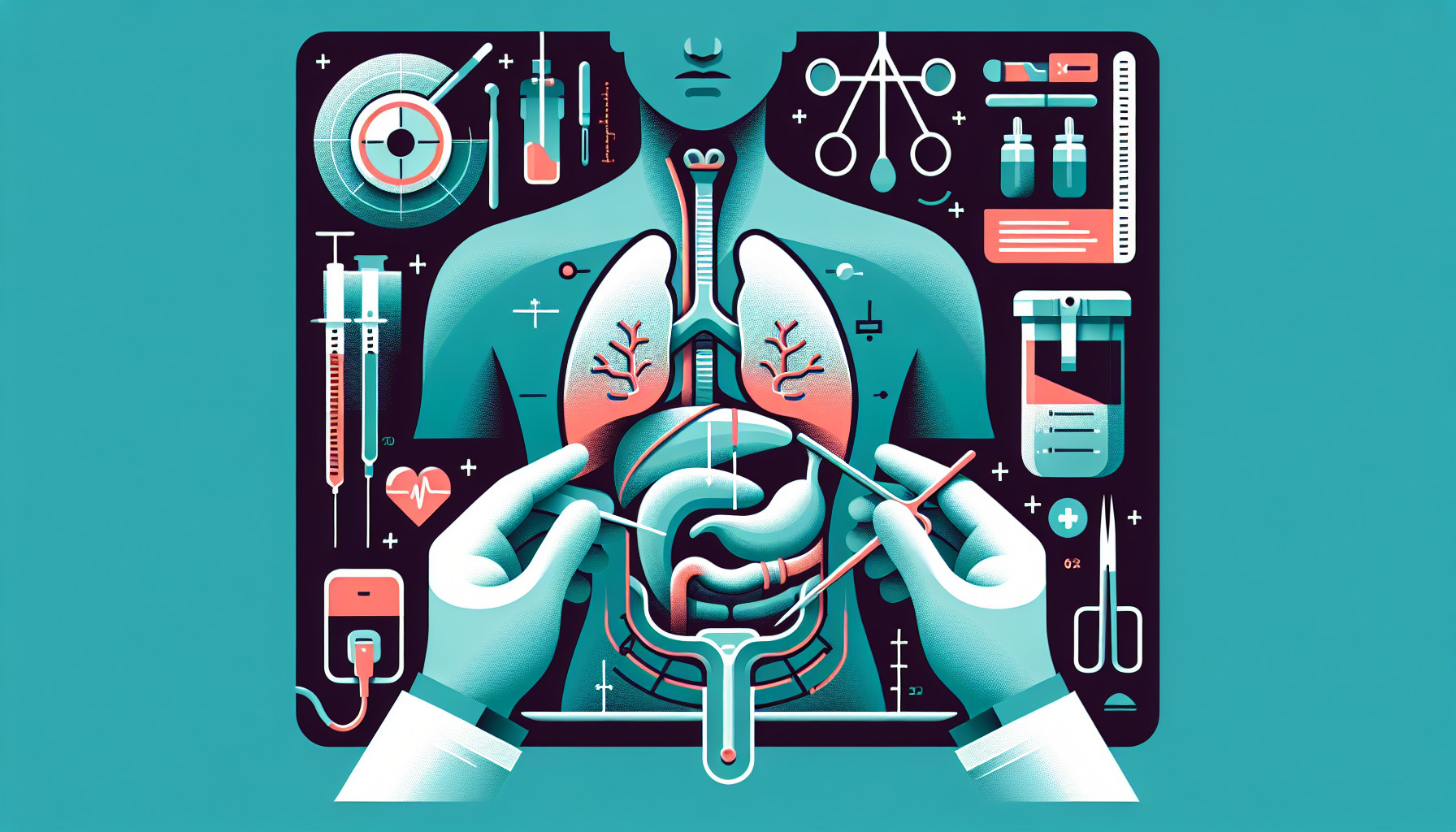Our Summary
This research paper discusses the issue of frailty in people who are candidates for, or have received, organ transplants. Frailty is defined by the presence of at least three out of five specific health issues: weak grip strength, low energy, slow walking speed, low physical activity, and unintentional weight loss. It is particularly common in people who need a transplant or have recently received one. People with diabetes or chronic kidney disease are more likely to be frail, and since pancreas transplants are mostly done in diabetes patients (many of whom also have kidney disease), these patients are at high risk of frailty. Frail patients have a harder time getting listed for a transplant and have a higher risk of dying while waiting for a transplant. They also tend to stay in the hospital longer after a transplant, are more likely to be readmitted, and may have trouble with their new organ starting to function. The researchers believe that frailty could have an even stronger negative impact on pancreas transplants, but they note that more specific data is needed for this group.
FAQs
- What is the definition of frailty in the context of organ transplants?
- Why are diabetes patients who need a pancreas transplant at a higher risk of frailty?
- What are the potential complications for frail patients who have received a pancreas transplant?
Doctor’s Tip
One helpful tip a doctor might tell a patient about pancreas transplant is to focus on improving overall physical health and strength to reduce the risk of frailty. This could include regular exercise, maintaining a healthy diet, and managing any chronic health conditions. Additionally, it is important for patients to follow their post-transplant care plan closely and attend all follow-up appointments to monitor for any signs of frailty or other complications. By taking proactive steps to improve their overall health and well-being, patients can increase their chances of a successful pancreas transplant and better outcomes in the long term.
Suitable For
Therefore, patients who are typically recommended for a pancreas transplant are those with type 1 diabetes who have also developed kidney disease (end-stage renal disease) as a result of their diabetes. These patients often have difficulty controlling their blood sugar levels and are at risk for complications such as kidney failure, nerve damage, and cardiovascular disease. A pancreas transplant can help improve their quality of life and reduce the need for insulin injections and dialysis.
In addition, patients who have undergone a previous kidney transplant and are experiencing complications related to their diabetes may also be considered for a pancreas transplant. These patients may benefit from the combined kidney-pancreas transplant, which can help improve their overall health and reduce the risk of further complications.
Overall, patients who are recommended for a pancreas transplant are those who have type 1 diabetes with complications such as kidney disease and are at high risk for frailty. These patients can benefit from the improved quality of life and reduced complications that a pancreas transplant can offer.
Timeline
Before a pancreas transplant:
- Patient is diagnosed with diabetes and/or chronic kidney disease.
- Patient experiences symptoms and complications related to their condition, such as high blood sugar levels, kidney failure, and organ damage.
- Patient undergoes evaluation for a pancreas transplant, including medical tests and assessments to determine eligibility for the procedure.
- Patient is placed on a waiting list for a suitable donor pancreas.
- Patient may experience declining health and complications while waiting for a transplant.
After a pancreas transplant:
- Patient undergoes surgery to receive the donor pancreas.
- Patient is closely monitored in the hospital for complications and recovery.
- Patient may experience side effects and complications from the transplant surgery, such as infection, rejection, or organ failure.
- Patient requires lifelong immunosuppressive medication to prevent rejection of the donor pancreas.
- Patient undergoes rehabilitation and follow-up care to monitor the function of the transplanted pancreas and address any issues that arise.
- Patient may experience improvements in their diabetes and kidney function, as well as overall quality of life.
- Patient continues to be at risk for complications and long-term health issues related to the transplant, including frailty and organ rejection.
Overall, the timeline of a pancreas transplant involves a complex and challenging journey for the patient, with both pre-transplant and post-transplant phases requiring careful management and support.
What to Ask Your Doctor
- What is the success rate of pancreas transplants in frail patients compared to non-frail patients?
- How does frailty affect the eligibility and wait time for a pancreas transplant?
- What specific measures can be taken to prevent or manage frailty before and after a pancreas transplant?
- Are there any additional risks or complications associated with pancreas transplants in frail patients?
- How can frailty be assessed and monitored in pancreas transplant candidates and recipients?
- Are there any specific rehabilitation or support programs available for frail patients undergoing a pancreas transplant?
- How does frailty impact the long-term outcomes and quality of life for pancreas transplant recipients?
- What are the potential benefits and risks of a pancreas transplant for a frail patient compared to other treatment options?
- How can family members or caregivers assist in managing frailty in a patient undergoing a pancreas transplant?
- Are there any research studies or clinical trials focused on addressing frailty in pancreas transplant patients?
Reference
Authors: Parajuli S, Aziz F, Garg N, Wallschlaeger RE, Lorden HM, Al-Qaoud T, Mandelbrot DA, Odorico AJS. Journal: Transplantation. 2021 Aug 1;105(8):1685-1694. doi: 10.1097/TP.0000000000003586. PMID: 33606487
